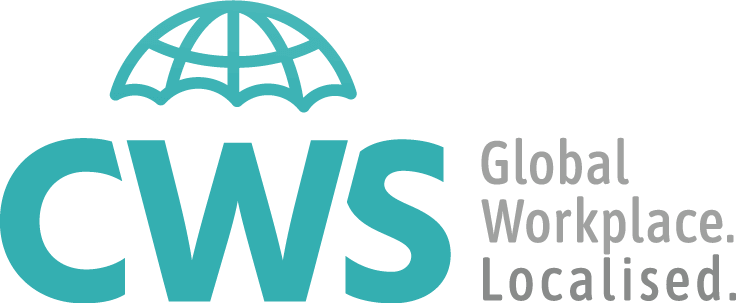This post is also available in: עברית (Hebrew) Русский (Russian) العربية (Arabic)
CWS Israel Responsible AI Use Policy
Introduction
As an industry-leading Employer of Record provider, CWS Israel recognises the transformative potential of artificial intelligence technologies and is committed to their ethical, responsible, and effective implementation. This policy establishes guidelines to ensure that all AI use aligns with our organisational values, protects our clients’ interests, and maintains the highest standards of integrity and accuracy.
Section 1: Human Oversight and Accountability
- Ultimate Responsibility: The ultimate responsibility for any content, decision, or action produced with AI assistance remains with CWS Israel staff members. Human judgment must be maintained throughout all processes involving AI technologies.
- Content Review: All AI-generated content must be thoroughly reviewed and approved by an appropriate staff member before external distribution or implementation in business processes.
- Prohibited Uses: We will not use AI to create or manipulate quotes, voices, images, or videos of identifiable individuals without their explicit consent.
Section 2: Accuracy and Reliability
- Verification Protocol: All information received from AI tools must be verified against reliable sources, especially for sensitive subjects or matters of compliance.
- Source Transparency: When using AI for information gathering, research, or analysis, we should prioritize systems that provide clear references for their sources and explain their reasoning processes.
- Special Care Applications: The following AI uses require particular attention and supervisory approval:
- Analysis of complex datasets and data visualization
- Financial reporting, especially regarding public companies
- Translation of compliance-related or contractual content
- Creation of headlines or summary documents for clients
Section 3: Transparency with Clients and Stakeholders
- Disclosure Requirements:
- When images, videos, or audio files are wholly machine-generated, this must be clearly indicated.
- Moderate use of AI assistance tools for drafting, editing, summarizing information, or research does not require explicit disclosure.
- When a significant portion of client-facing content is machine-generated, especially on sensitive matters, disclosure should be considered after consultation with management.
- Regular Policy Review: We will regularly examine and update our disclosure policies in accordance with technological developments and stakeholder feedback.
Section 4: Bias Detection and Prevention
- Critical Evaluation: All AI outputs must be critically evaluated to identify possible social, cultural, gender, or other biases, particularly regarding unique groups in Israeli society.
- Balanced Prompting: Staff should formulate queries and prompts in a balanced and neutral manner to avoid biasing results. For sensitive topics, multiple approaches should be used to obtain diverse perspectives.
Section 5: Confidentiality and Data Security
- Sensitive Information Protection:
- No sensitive, private, confidential, commercial, or internal information should be input into open or free AI tools.
- Special care must be taken to protect client information and employment data when using any AI system.
- Client Confidentiality: Extreme caution must be exercised to maintain client confidentiality when using AI tools. Information that could reveal or compromise the identity of clients or their employees must never be entered into AI systems, and for particularly sensitive information, only secure AI tools should be used with documented usage for future auditing.
- De-identification Awareness: Merely removing names is insufficient for privacy protection. Details such as dates, locations, specific descriptions, or other unique information could enable AI systems to indirectly identify individuals or organizations.
Section 6: Intellectual Property Rights
- Responsible Sourcing: We will not knowingly use AI tools that infringe on copyright, either in their training methods or in their outputs.
- Content Verification: All content received from AI applications, including text, images, audio, or video, must be checked to ensure it is not copied from existing accessible content.
Section 7: Implementation and Compliance
- Training: All CWS Israel staff will receive training on this policy and on the effective and responsible use of AI tools.
- Regular Updates: This policy will be reviewed quarterly to incorporate technological advances and evolving best practices.
- Violation Reporting: Employees are encouraged to report any concerns regarding AI use or potential policy violations to their supervisor or through the company’s ethical reporting channel.
Conclusion
At CWS Israel, we are committed to harnessing the power of artificial intelligence to enhance our services while maintaining the highest standards of professionalism, accuracy, and ethical conduct. This policy guides our approach to using AI technologies responsibly, ensuring they augment rather than replace human expertise and judgment in our operations as an Employer of Record provider.
This post is also available in: עברית (Hebrew) Русский (Russian) العربية (Arabic)
